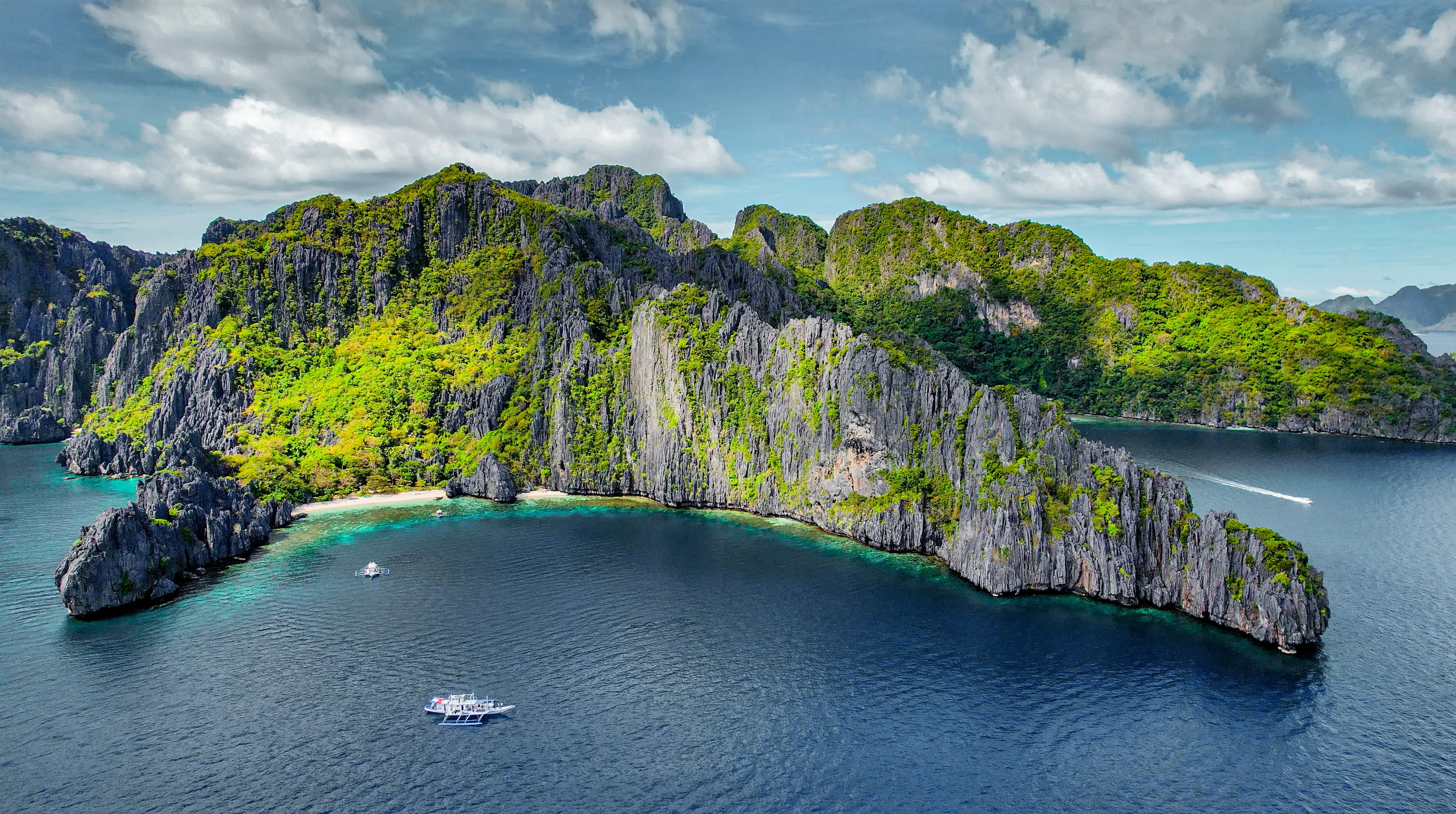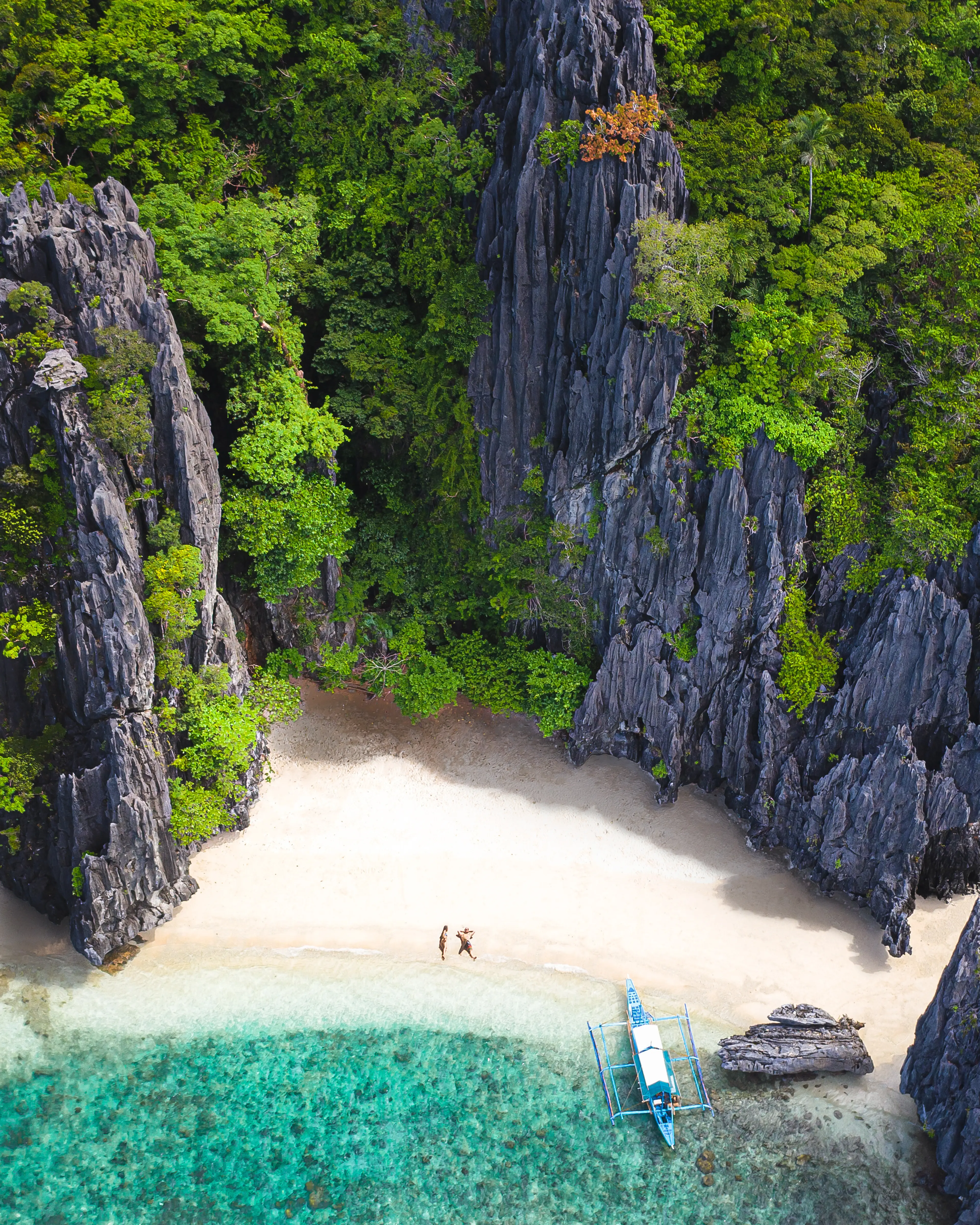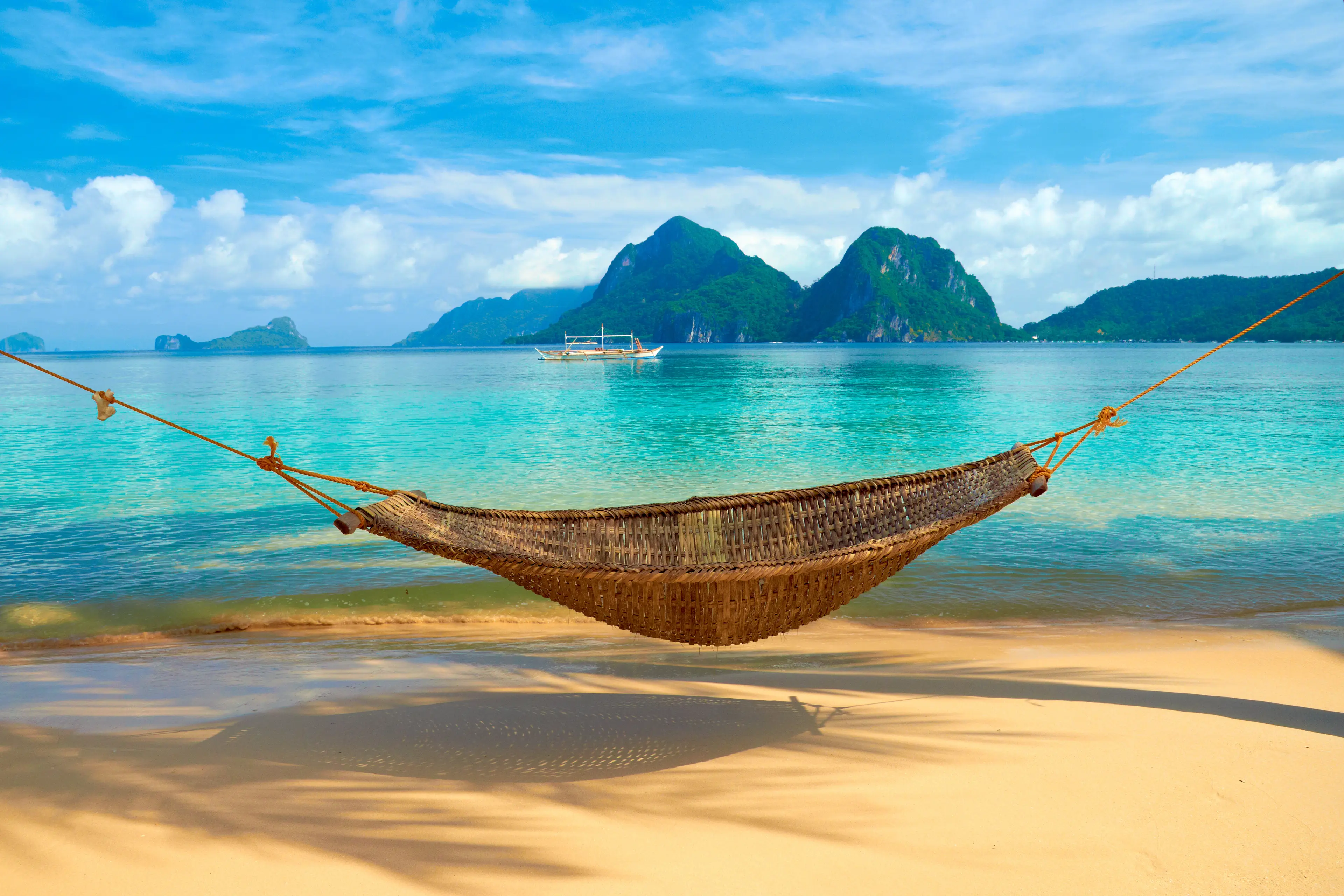3-Day Local Experience: Palawan Sightseeing and Culinary Adventure with Friends
Palawan, Philippines
3 days
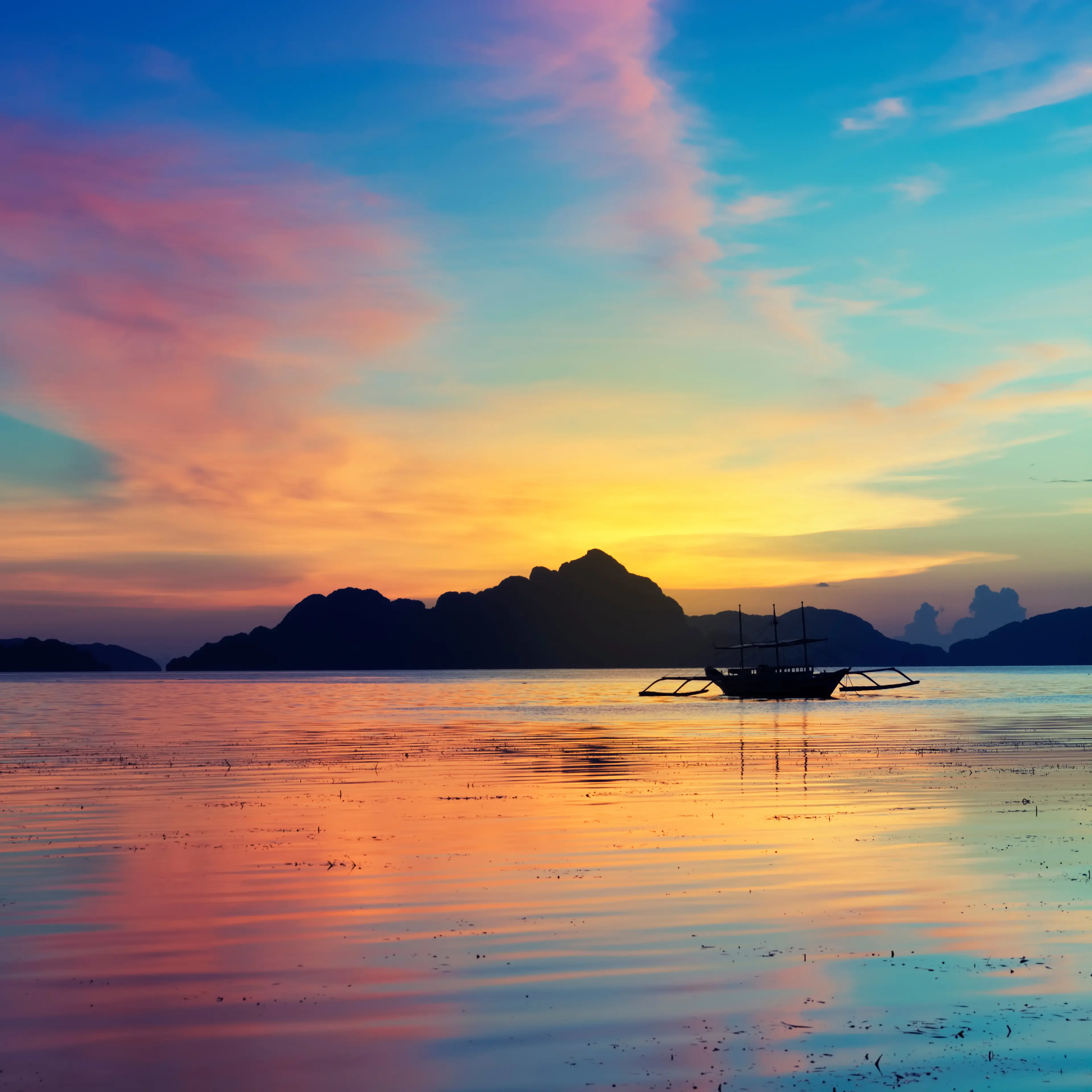
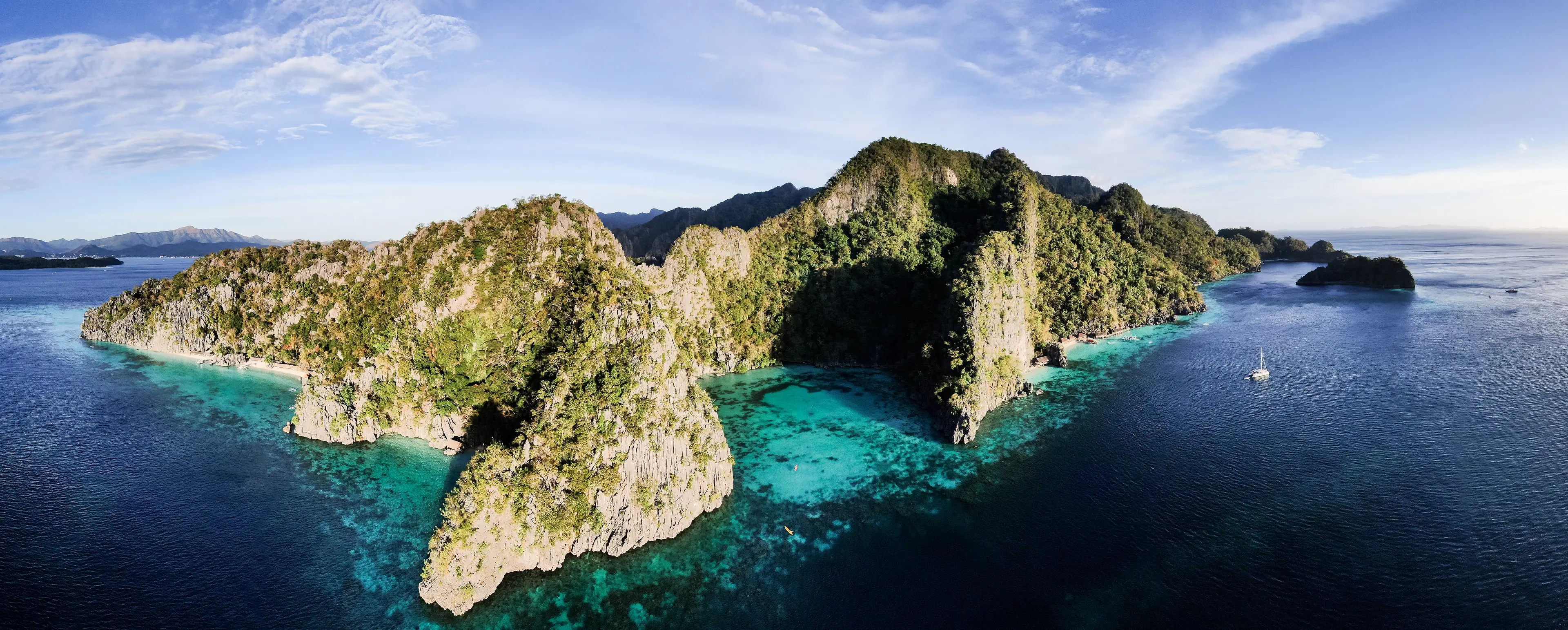
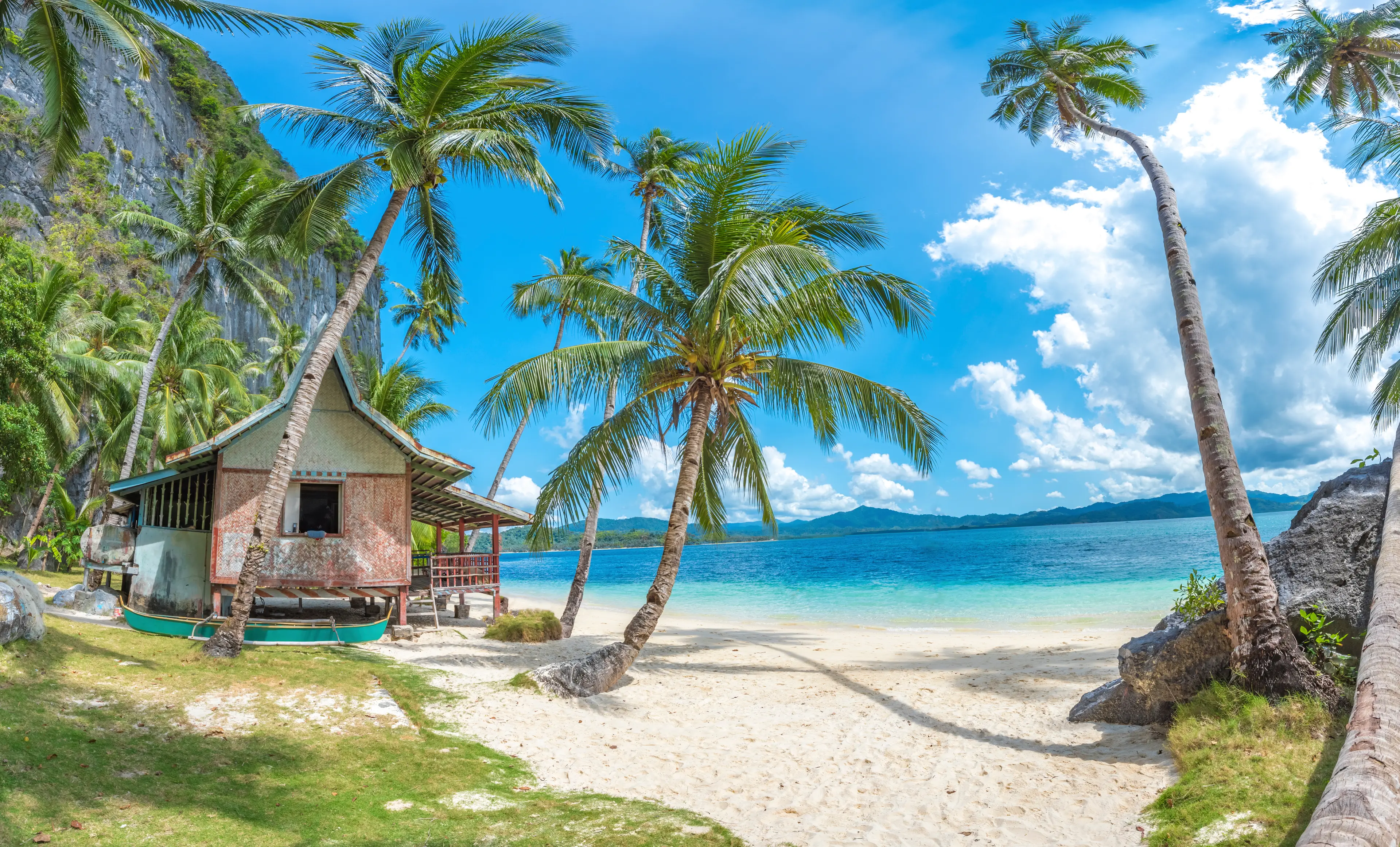
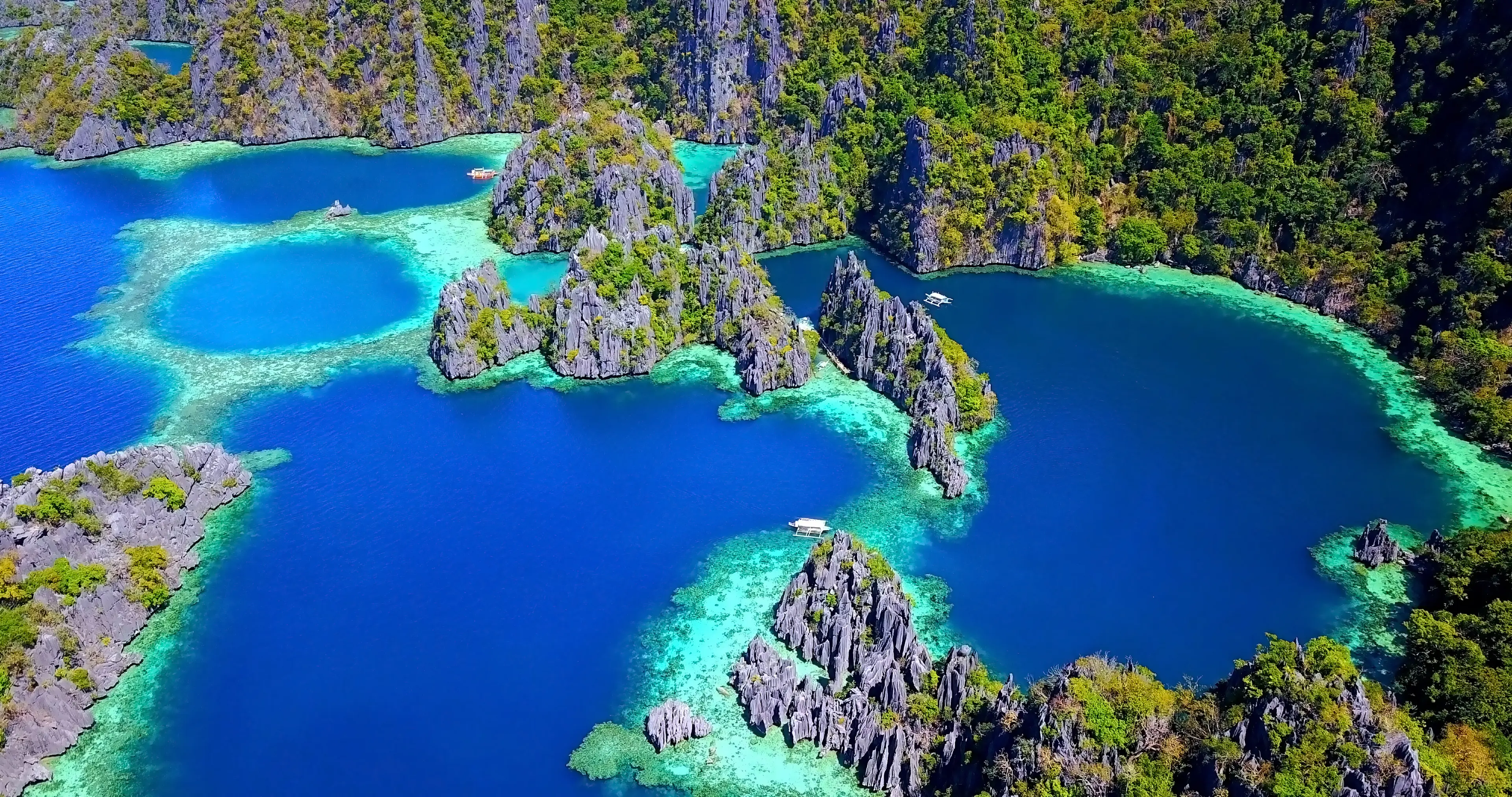
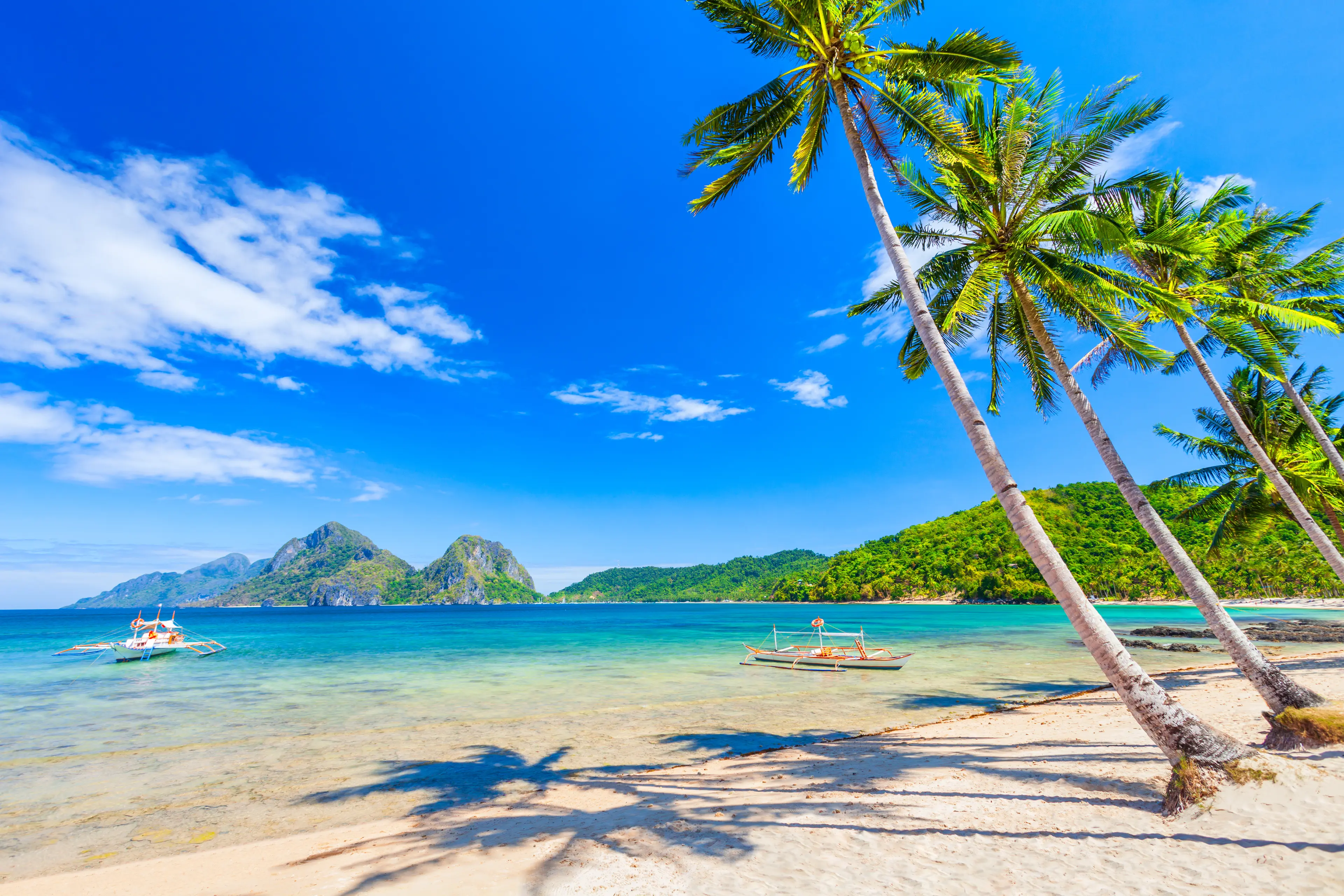
About Palawan, Philippines
Discover the tropical paradise of Palawan, Philippines, an archipelago of pristine beaches, crystal-clear waters, and stunning biodiversity. Explore the UNESCO World Heritage Site, the Subterranean River National Park, with its impressive underground river. Dive into the Tubbataha Reefs Natural Park, a haven for marine life enthusiasts. Visit the idyllic islands of El Nido and Coron, known for their limestone cliffs, secret lagoons, and vibrant coral reefs. Experience local culture in the capital city, Puerto Princesa, and savor the unique flavors of Filipino cuisine. Whether you're an adventurer, a nature lover, or a beach bum, Palawan offers a unique and unforgettable travel experience.
3-Day Itinerary
Day 2
Discovering El Nido's Marine Life and Nightlife
Morning
Start your second day with a visit to the El Nido Marine Reserve Park. This area is known for its diverse marine life and beautiful coral reefs.
Lunch
Have lunch at a local restaurant in El Nido. Try the local seafood dishes and enjoy the stunning beach views.
Afternoon
Spend the afternoon island hopping. Visit the Big Lagoon, Small Lagoon, and Secret Lagoon. Each of these spots offers unique views and experiences.
Dinner
Enjoy dinner at a local restaurant. Try the local delicacies such as Kinilaw and Chicken Inasal.
Evening
Spend the evening exploring the local nightlife. Enjoy live music and dance performances at local bars.
Day 3
Diving in Tubbataha Reefs and Shopping in Puerto Princesa
Morning
On your final day, visit the Tubbataha Reefs Natural Park. This UNESCO World Heritage Site is a haven for divers and snorkelers.
Lunch
Have lunch at a local restaurant. Enjoy the fresh seafood and local delicacies.
Afternoon
Spend the afternoon exploring the local markets. Buy souvenirs and local handicrafts.
Dinner
For your final dinner, enjoy a traditional Filipino feast at a local restaurant.
Evening
Spend your final evening relaxing at your hotel or exploring the local nightlife.
Attractions in Itinerary (7)
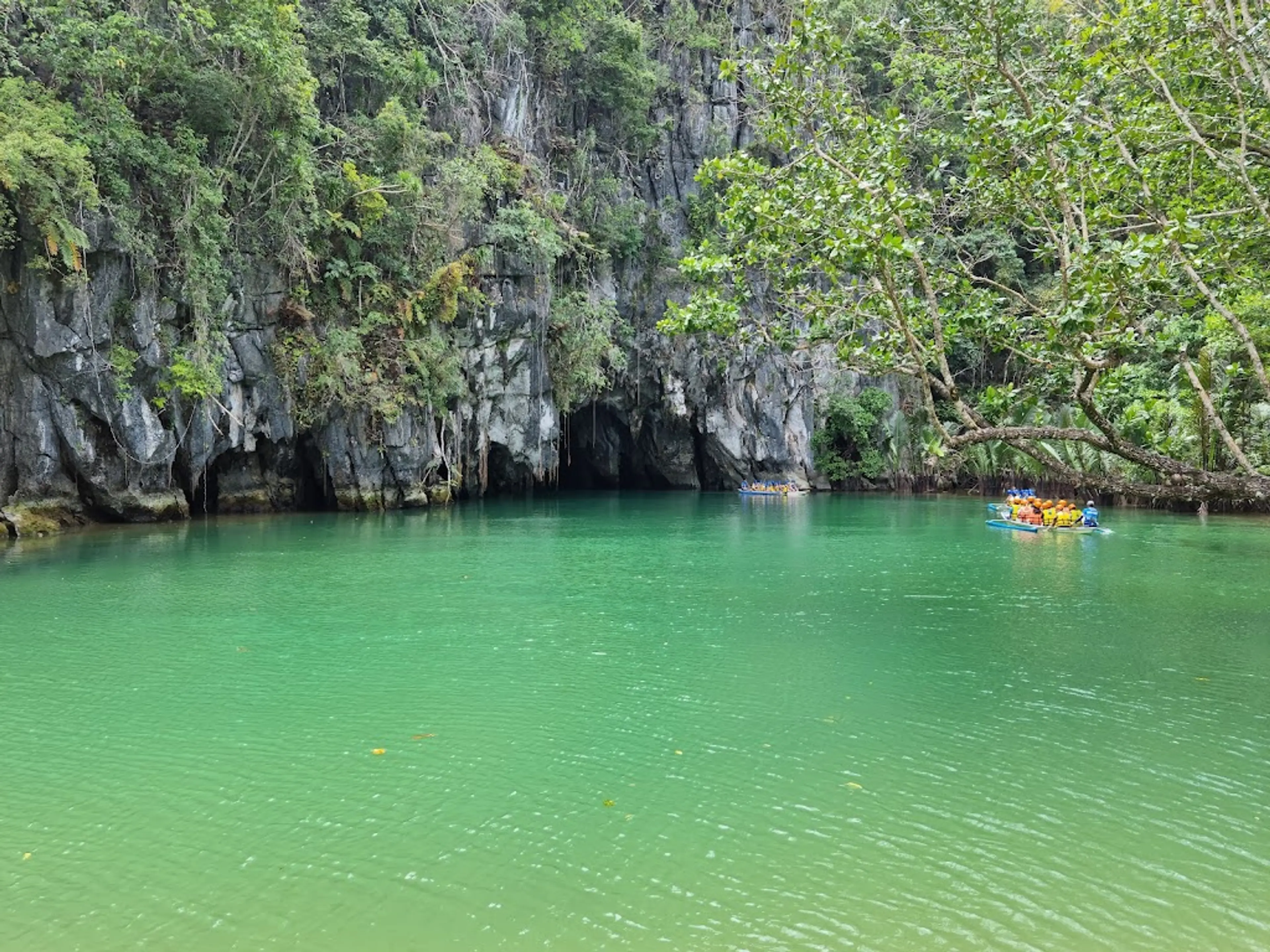
1Puerto Princesa Subterranean River National Park
A UNESCO World Heritage Site featuring a spectacular limestone karst landscape with an underground river.

2Honda Bay
Honda Bay is one of the most sought-after tourist destinations in Palawan, known for its beautiful islands and beaches. It offers island hopping tours where you can swim, snorkel, and enjoy the beautiful marine life.

3El Nido Marine Reserve Park
A marine reserve park known for its diverse ecosystem.

4Big Lagoon
The Big Lagoon is a natural wonder with its crystal clear waters surrounded by limestone cliffs. It's a popular spot for kayaking and swimming.

5Small Lagoon
The Small Lagoon, accessible through a small gap between limestone rocks, is a tranquil spot perfect for swimming and kayaking.

6Secret Lagoon
A hidden lagoon accessible through a small hole in the limestone cliffs. Known for its tranquil waters and stunning scenery.

7Tubbataha Reefs Natural Park
A UNESCO World Heritage Site, this marine park is home to a diverse range of sea life.
Local Food and Drinks (12)
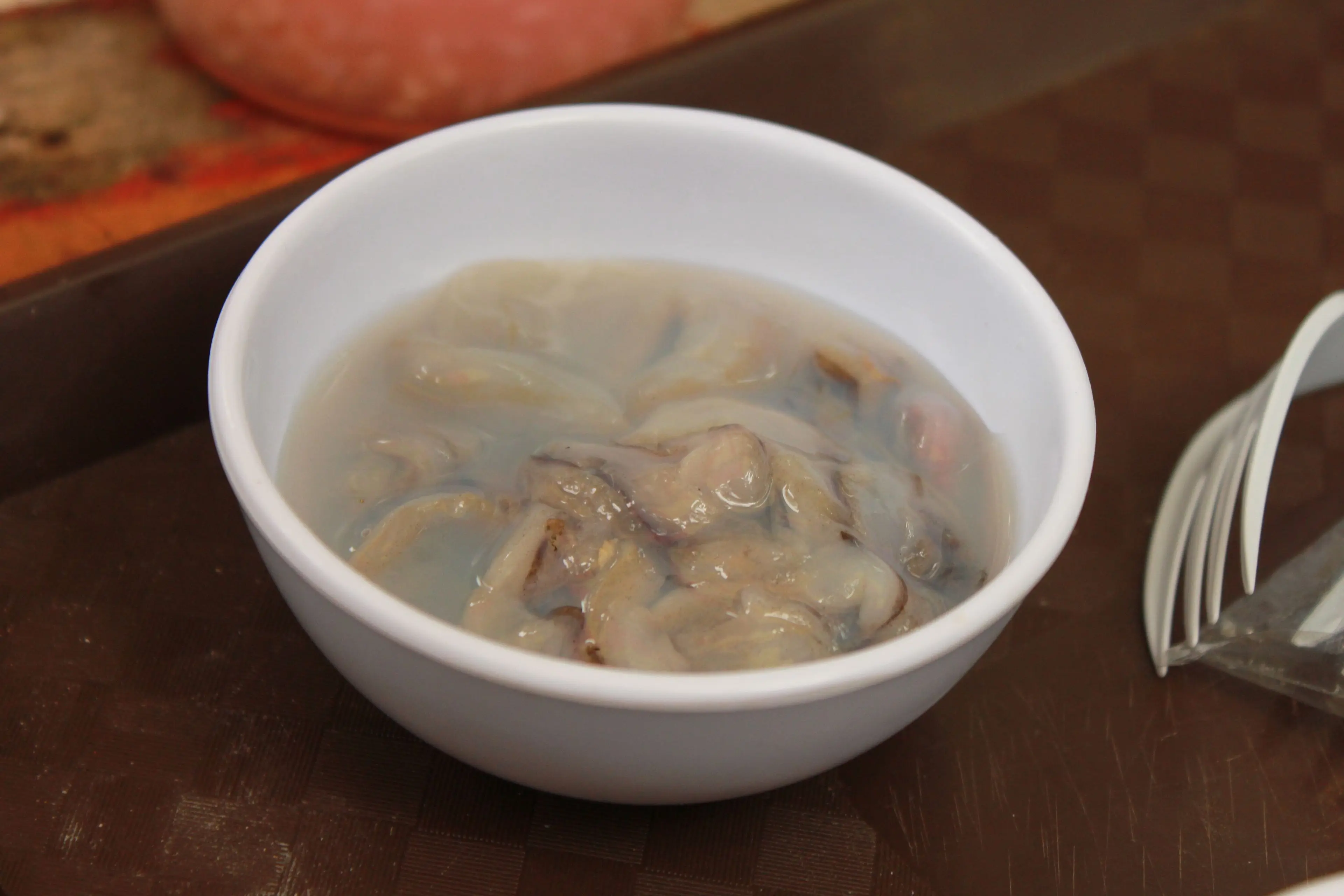
Tamilok
A local delicacy in Palawan, Tamilok is a type of woodworm that is usually eaten raw with vinegar, chili, and onions. It is a must-try for adventurous food lovers visiting the region.
Chao Long
Chao Long is a Vietnamese-inspired noodle soup that has become a staple in Palawan. It is made with rice noodles, herbs, and either beef or pork.
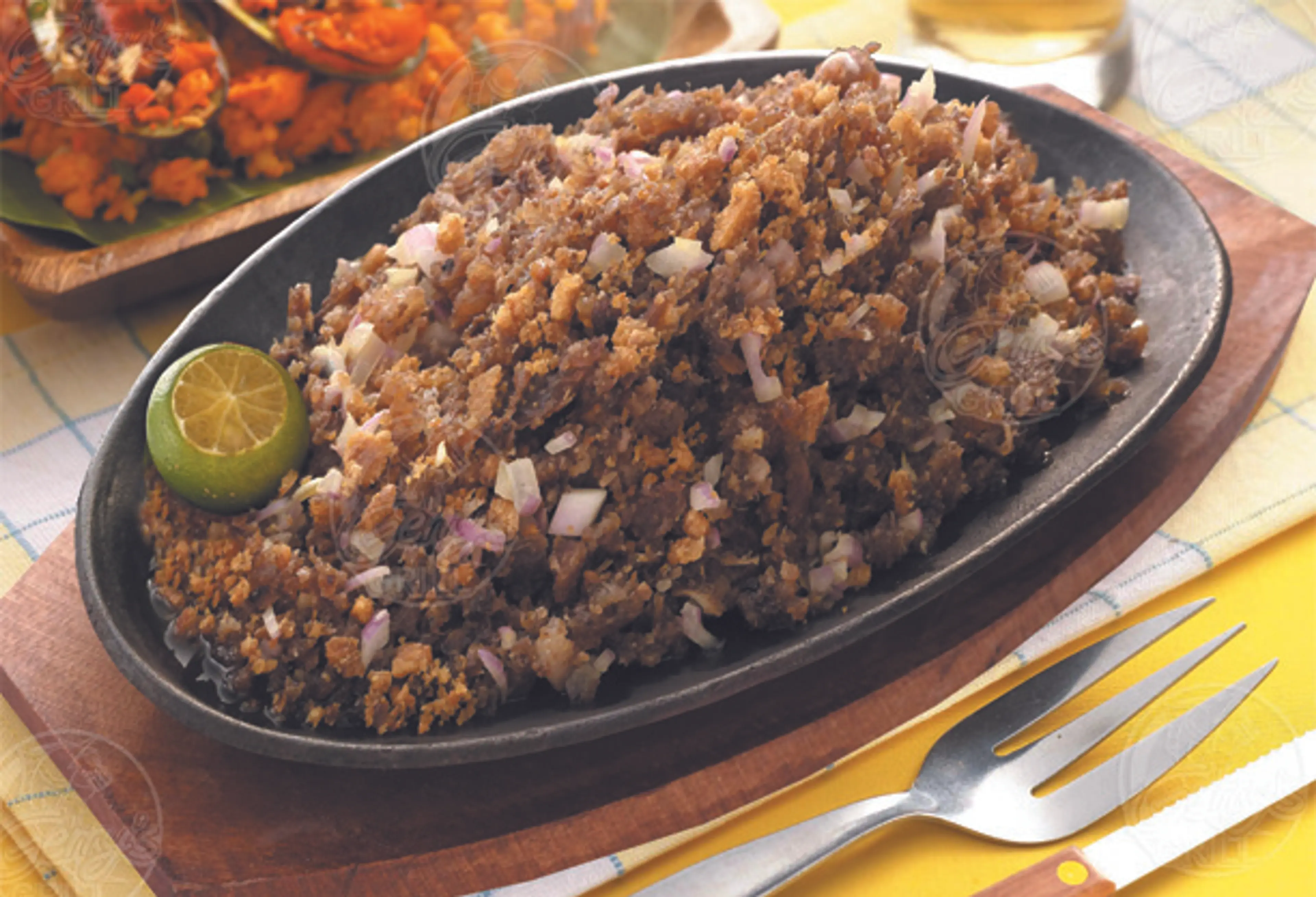
Crocodile Sisig
A unique dish in Palawan, Crocodile Sisig is made from minced crocodile meat cooked with onions, chili peppers, and seasonings. It is a twist on the traditional Filipino sisig.
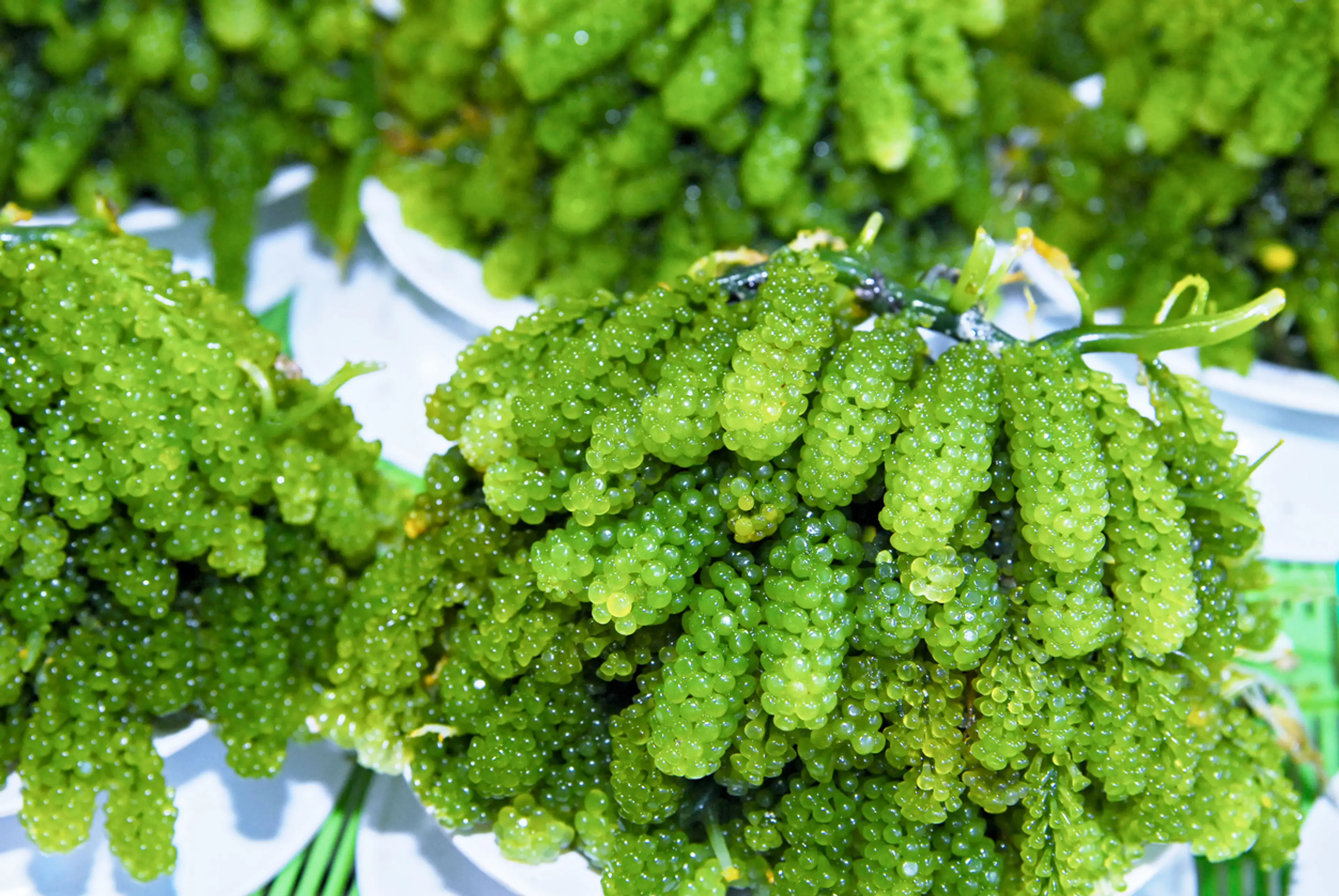
Lato Salad
Lato, also known as sea grapes or green caviar, is a type of seaweed that is commonly used in salads in Palawan. It is usually served with tomatoes, onions, and a vinegar dressing.
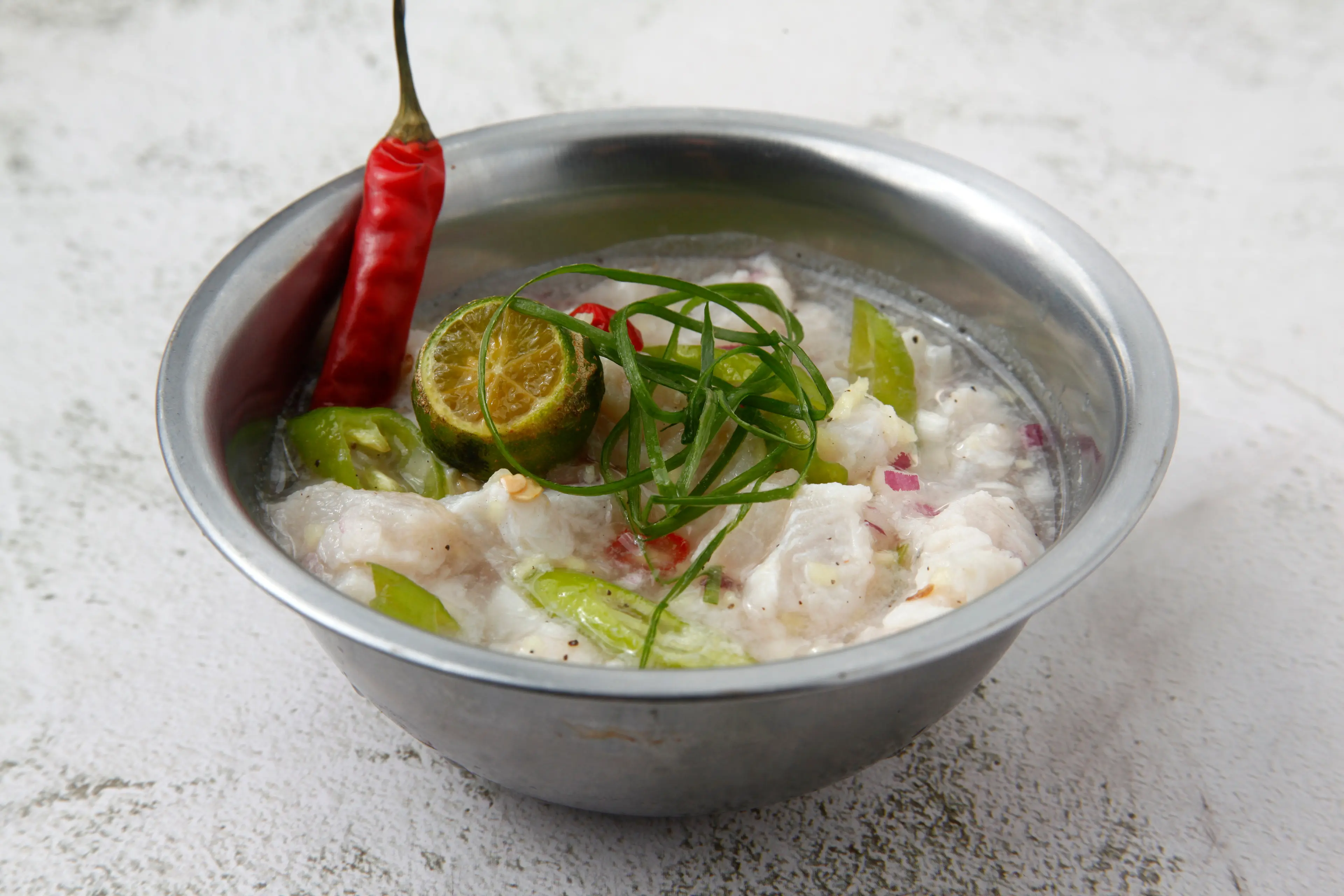
Kinilaw na Tanigue
Kinilaw na Tanigue is a raw fish salad made with Spanish mackerel, vinegar, and local spices. It is a popular dish in Palawan due to the abundance of fresh seafood.
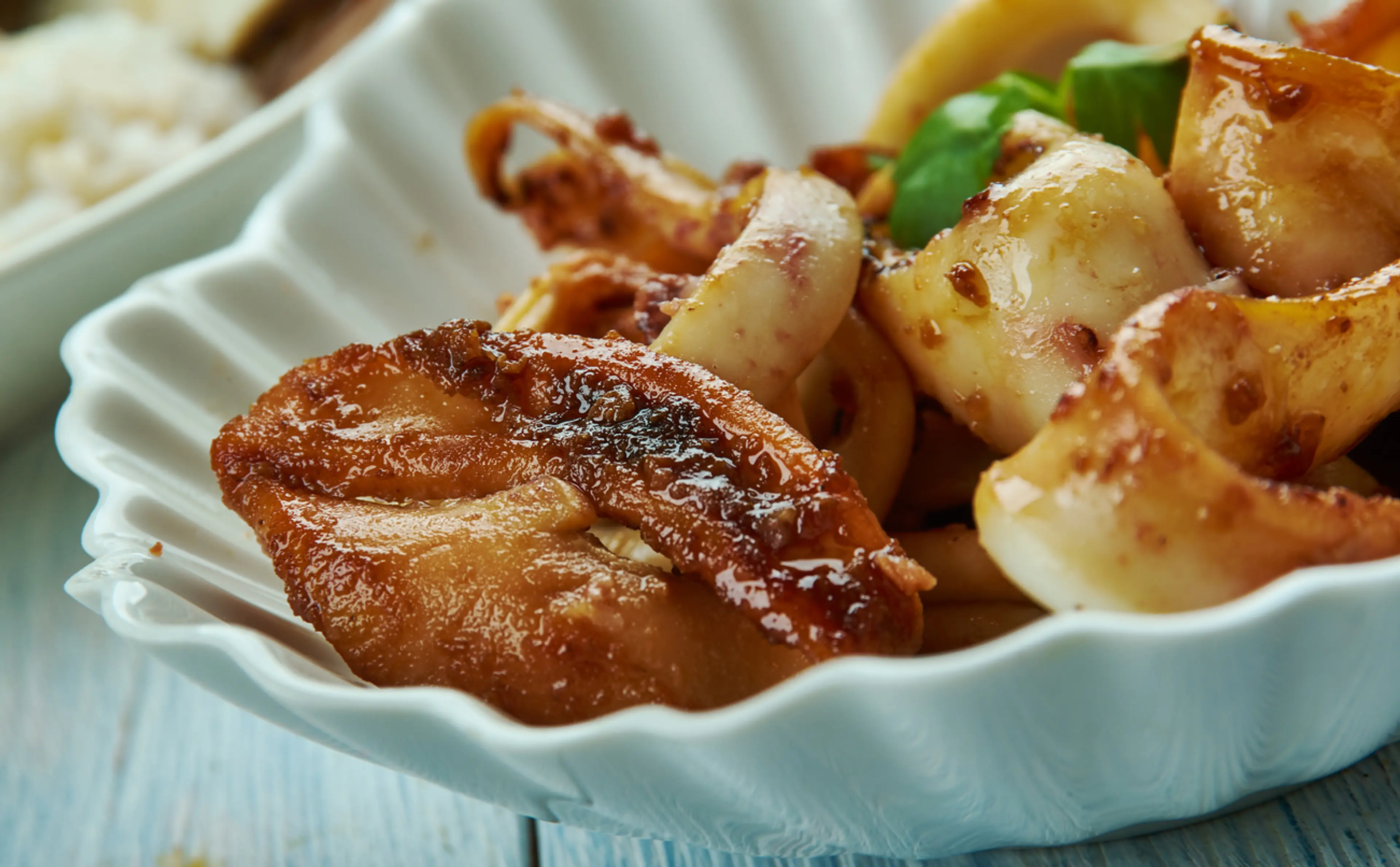
Adobong Pusit
Adobong Pusit is a squid dish cooked in soy sauce, vinegar, and garlic. It is a common dish in Palawan and showcases the region's fresh seafood.
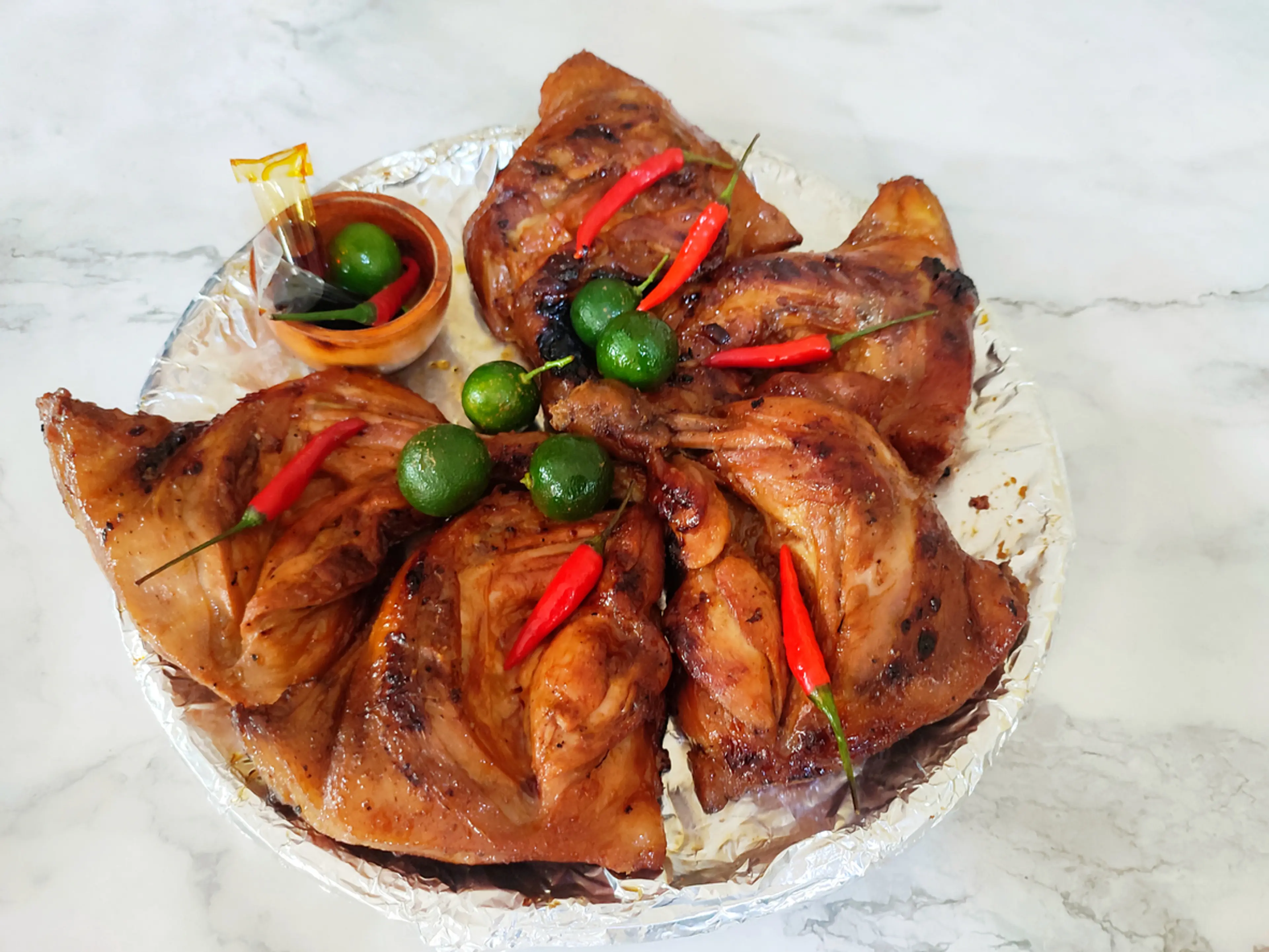
Chicken Inasal
Chicken Inasal is a grilled chicken dish marinated in a mixture of calamansi, pepper, coconut vinegar, and annatto. It is a popular street food in Palawan.
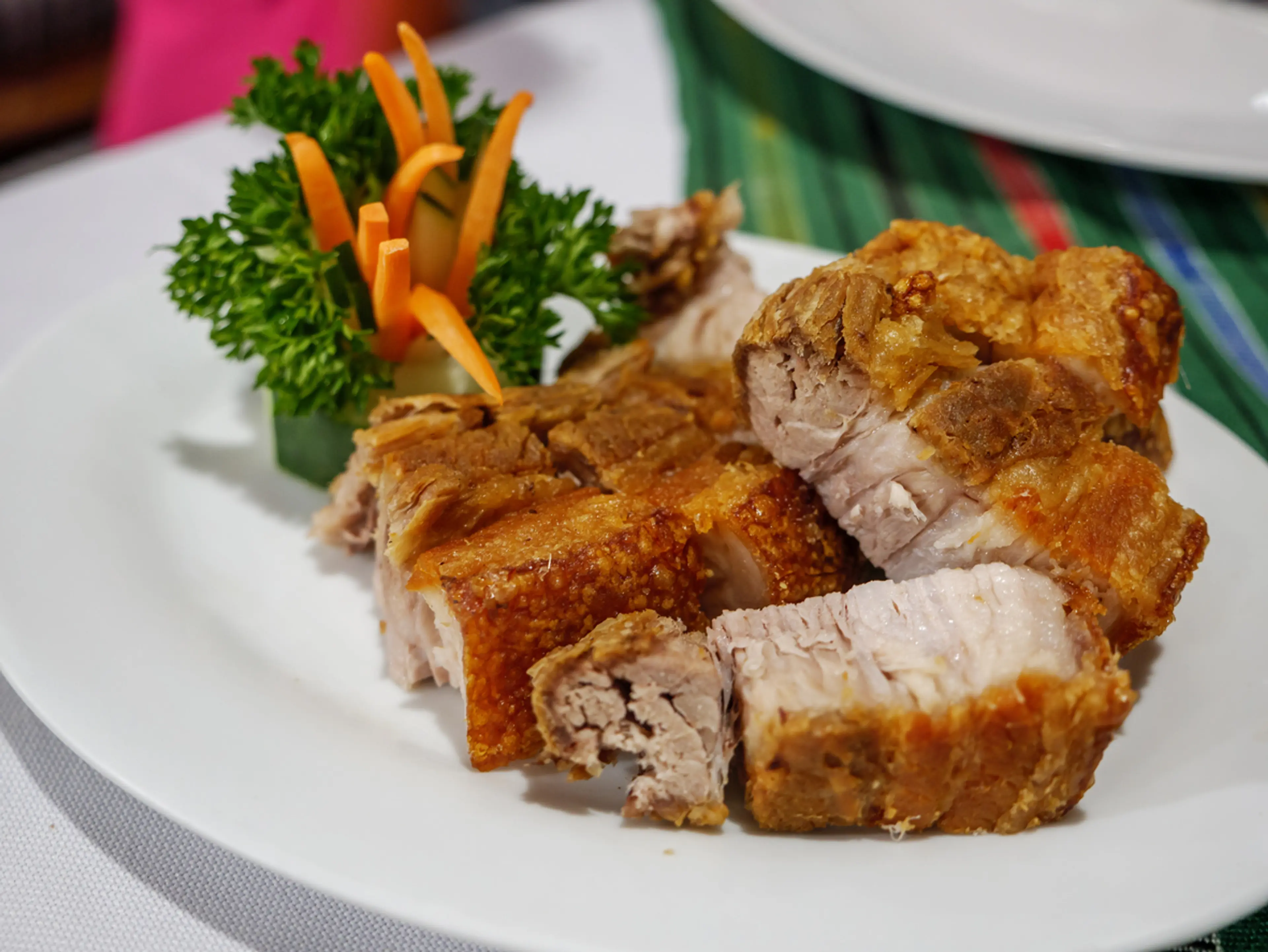
Lechon Kawali
Lechon Kawali is a crispy pork belly dish that is deep-fried until golden brown. It is a favorite among locals and tourists in Palawan.
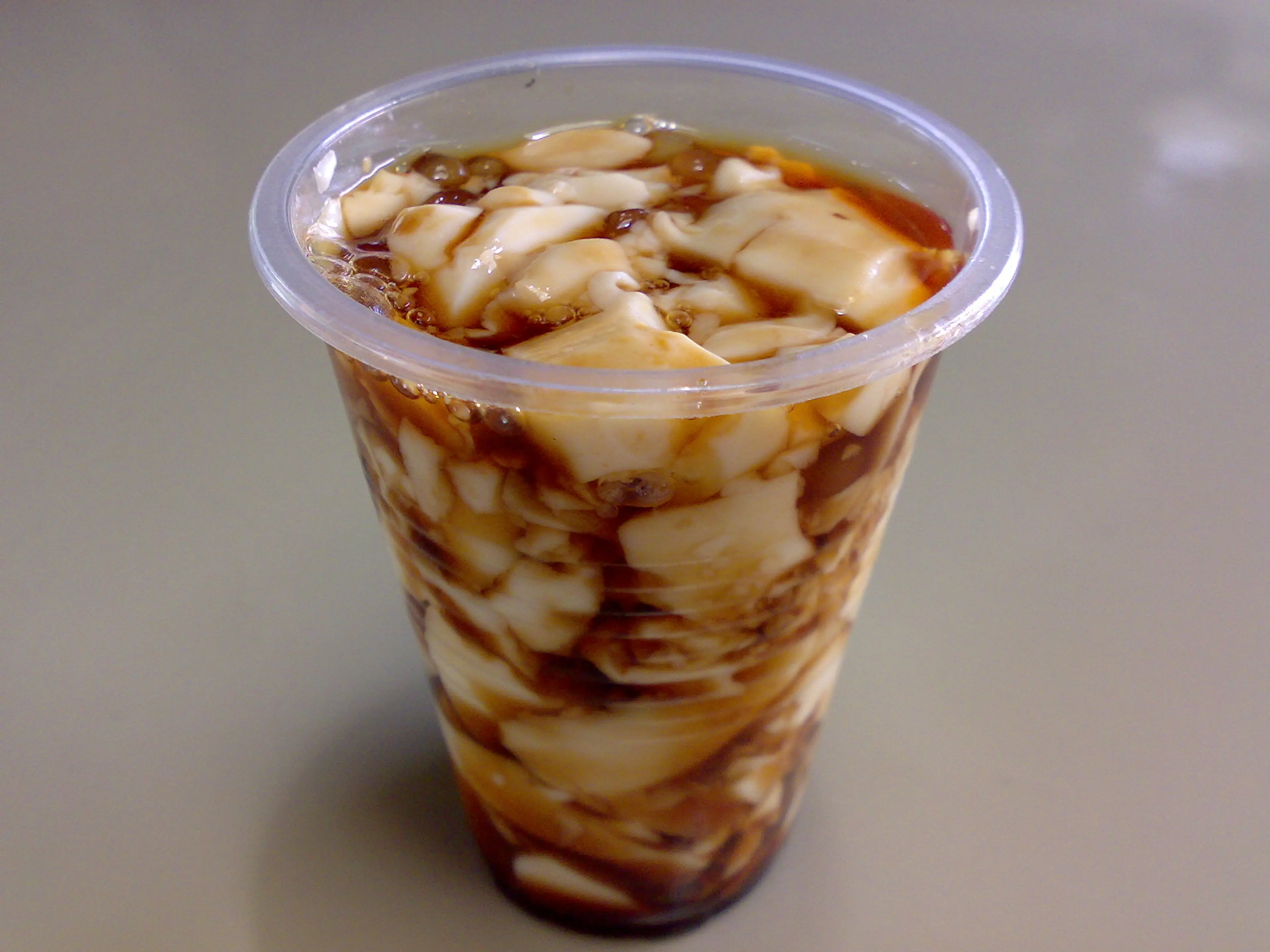
Taho
Taho is a sweet Philippine snack food made of fresh soft/silken tofu, arnibal (sweetener and flavoring), and sago pearl (similar to tapioca pearls). This staple comfort food is a must-try in Palawan.
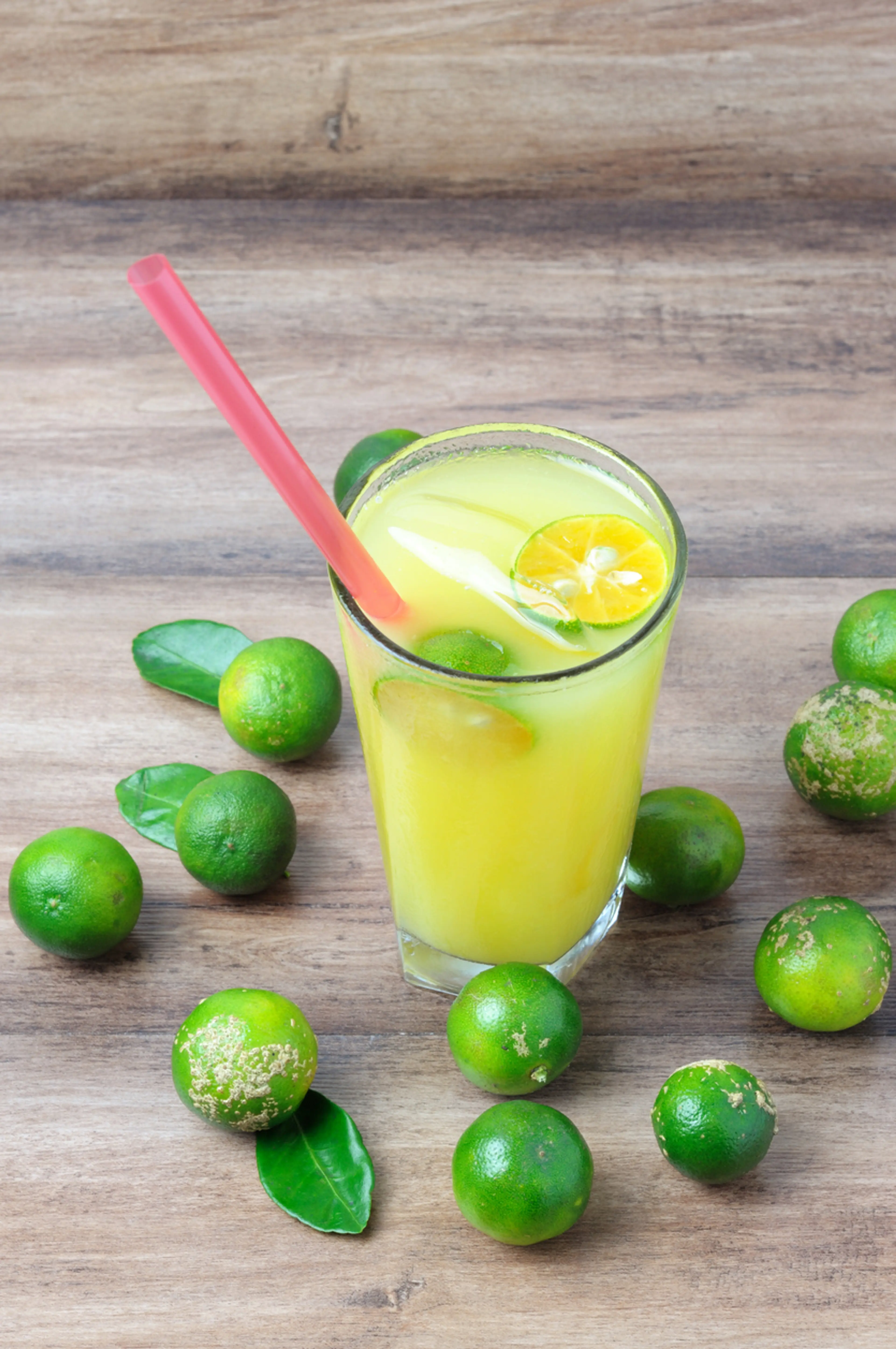
Calamansi Juice
Calamansi Juice is a refreshing drink made from calamansi, a small citrus fruit native to the Philippines. It is a popular drink in Palawan, often served chilled to beat the tropical heat.
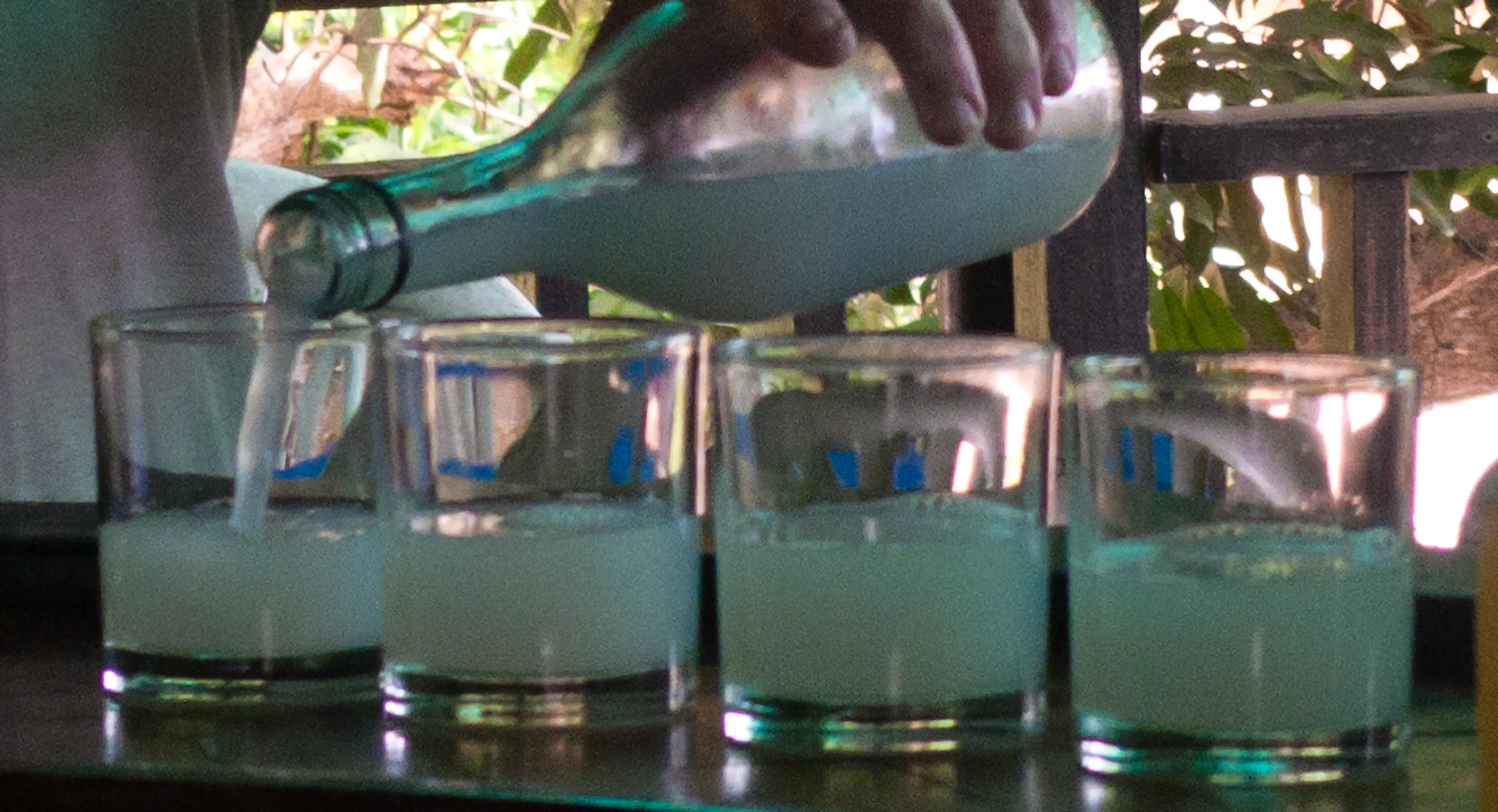
Tuba
Tuba is a traditional Filipino alcoholic drink made from the sap of the coconut palm. It is commonly consumed in Palawan and offers a taste of the local culture.
Lambanog
Lambanog is a traditional Filipino distilled palm liquor made from coconut or nipa palm sap. It is a strong drink often enjoyed by locals in Palawan.
Best time to visit
The best time to visit Palawan, Philippines is during the dry season, which typically runs from October to mid-June. During this period, you can expect less rainfall and more sunny days, making it ideal for outdoor activities and beach outings. The months of April and May are particularly popular as these are the summer months in the Philippines, offering the perfect weather for exploring the beautiful islands of Palawan. However, if you prefer a less crowded time, consider visiting during the shoulder months of the season such as October, November, and June.
How to get around
Airplane
The most common way to get to Palawan is by airplane. There are two main airports: Puerto Princesa International Airport and Francisco B. Reyes Airport in Coron. Major airlines operate daily flights to and from Manila, Cebu, and other parts of the Philippines.
Boat
Once you're in Palawan, traveling by boat is a popular way to get around, especially if you're planning to visit the smaller islands. There are public ferries and private boat tours available.
Tricycle
Tricycles are a common mode of transport in Palawan, especially in Puerto Princesa. They are similar to auto-rickshaws and can accommodate up to 4 passengers. They are ideal for short distances within the city.
Van
Vans are commonly used for longer distances within Palawan, such as traveling from Puerto Princesa to El Nido. These are usually air-conditioned and can accommodate up to 10 passengers.
Motorbike
Renting a motorbike is a popular option for those who want more freedom and flexibility in their travel. It's a great way to explore the island at your own pace. However, this is recommended only for those who are experienced riders.
Jeepney
Jeepneys are a popular and affordable mode of public transportation in the Philippines. In Palawan, they are commonly used for traveling between towns.
Ridesharing
Ridesharing services, such as Grab, are available in Puerto Princesa. This can be a convenient way to get around the city, especially if you're not familiar with the local transportation system.
Bus
Buses are another option for long distance travel within Palawan. They are slower than vans but can be more comfortable and spacious.
Pedal Bike
For short distances or if you prefer a more active mode of transportation, pedal bikes are available for rent in some areas of Palawan.
Important information
Currency₱ PHP
Time zoneUTC+8
Driving sideRight
Emergency phone166117
Drinking waterOpt for bottled water
Power sockets
Voltage220 V
Things to know about Palawan, Philippines as a first time visitor
1
The official language of the Philippines is Filipino, but English is widely spoken and understood in Palawan.
2
The local currency is the Philippine Peso (PHP). Credit cards are accepted in most places, but it's advisable to carry some cash for smaller establishments or remote areas.
3
ATMs are available in major towns, but can be scarce in more remote areas. Plan your cash needs accordingly.
4
Palawan has a tropical climate. The dry season is from November to May, and the rainy season is from June to October.
5
Temperatures in Palawan typically range from 24°C to 31°C (75°F to 88°F). It's advisable to pack lightweight, breathable clothing.
6
Always apply sunscreen and wear a hat when outdoors, as the sun can be quite strong.
7
Tipping is not mandatory in the Philippines, but it is appreciated. A 10% tip is considered generous.
8
Public transportation in Palawan includes tricycles, jeepneys, and vans. Taxis are not common.
9
The local cuisine is a must-try. Seafood is particularly popular in Palawan.
10
Tap water is not safe to drink. Always opt for bottled water.
11
Palawan is generally safe, but as with any travel destination, it's important to stay vigilant and aware of your surroundings.
12
Healthcare facilities in Palawan are limited. It's advisable to have travel insurance that covers medical evacuation.
13
The electricity in Palawan is 220 volts, 60 Hz. The plugs are type A, B, C. It's advisable to bring a universal adapter.
14
Internet connection can be slow and unreliable, especially in remote areas.
15
Palawan is in the Philippine Standard Time zone, which is 8 hours ahead of Greenwich Mean Time (GMT+8).
16
Respect local customs and traditions. Filipinos are generally friendly and hospitable, but it's important to be mindful of local etiquette.
17
Pack insect repellent. Mosquitoes can be prevalent, especially during the rainy season.
18
There are many protected areas in Palawan. Always follow the rules and guidelines to help preserve the local environment.
19
Typhoons can occur in Palawan, especially during the rainy season. Stay informed about the weather forecast during your visit.
20
Shopping in Palawan offers a variety of local handicrafts, pearls, and other souvenirs. Remember to bargain in markets.
Basic Filipino to know as a first time visitor
English phrase | Native phrase | Pronunciation | When to use it |
|---|---|---|---|
Hello | Kumusta | koo-mus-ta | Greeting someone |
Goodbye | Paalam | pa-a-lam | Leaving or saying goodbye |
Thank you | Salamat | sa-la-mat | Showing appreciation |
Please | Pakisuyo | pa-ki-su-yo | Making a request |
Yes | Oo | o-o | Agreeing or confirming |
No | Hindi | hin-di | Disagreeing or denying |
Excuse me | Makikiraan | ma-ki-ki-ra-an | Getting attention or apologizing |
I'm sorry | Pasensya na | pa-sen-sha na | Apologizing |
Do you speak English? | Nagsasalita ka ba ng Ingles? | nag-sa-sa-li-ta ka ba ng Ing-les | Asking if someone speaks English |
I don't understand | Hindi ko maintindihan | hin-di ko mai-n-tin-di-han | Not understanding what was said |
Where is the bathroom? | Saan ang banyo? | sa-an ang ban-yo | Looking for the bathroom |
How much is this? | Magkano ito? | mag-ka-no i-to | Asking for the price |
I need help | Kailangan ko ng tulong | kai-lan-gan ko ng tu-long | Asking for help |
Can you help me? | Pwede mo ba akong tulungan? | pwe-de mo ba a-kong tu-lu-ngan | Asking for help |
I'm lost | Nawawala ako | na-wa-wa-la a-ko | When you're lost |
Call the police | Tumawag ng pulis | tu-ma-wag ng pu-lis | In case of an emergency |
Can I use your phone? | Pwede ko bang gamitin ang telepono mo? | pwe-de ko bang ga-mi-tin ang te-le-po-no mo | Asking to use the phone |
Where can I find a taxi? | Saan ako makakahanap ng taxi? | sa-an a-ko ma-ka-ka-ha-nap ng taxi | Looking for a taxi |
I would like to order | Gusto ko pong umorder | gus-to ko pong u-mor-der | Ordering food or drinks |
Check, please | Paki-abot ng bill, please | pa-ki-a-bot ng bill, please | Asking for the bill |
Packing List
Clothing
Lightweight clothing
Underwear
Swimwear
Beach cover-up
Flip flops
Walking shoes
Hat
Sunglasses
Light jacket or sweater for cooler evenings
Toiletries
Travel-sized shampoo and conditioner
Body wash
Toothbrush and toothpaste
Deodorant
Razor
Sunscreen
Insect repellent
First-aid kit (band-aids, antiseptic wipes, tweezers)
Prescription medications
Contact lenses and solution (if needed)
Travel documents and essentials
Passport
Driver's license or other ID
Credit and debit cards
Cash (in local currency)
Travel insurance documents
Hotel and/or tour confirmations
Emergency contacts and important addresses
Electronics and gadgets
Smartphone
Charger for smartphone
Power bank
Headphones
Camera
Memory card for camera
Travel adapter for plugs
Miscellaneous items
Snacks
Reusable water bottle
Books or e-reader for the flight
Travel pillow and blanket
Earplugs and eye mask
Zip-lock bags for toiletries
Beach bag
Travel guidebook
Notebook and pen
Umbrella or rain poncho
Weather Conditions
Palawan, Philippines is a tropical paradise that offers warm weather throughout the year. However, it's important to note that the region experiences two distinct seasons: the dry season from November to May, and the rainy season from June to October. During the dry season, you can expect temperatures to range from 79°F to 91°F (26°C to 33°C). This is the best time to visit if you're planning on doing a lot of outdoor activities, such as exploring the underground river in Puerto Princesa or island hopping in El Nido and Coron. The rainy season, on the other hand, brings frequent showers and occasional typhoons. Temperatures during this time range from 77°F to 88°F (25°C to 31°C). Despite the rain, the islands remain beautiful and lush, and there are fewer tourists, which can make for a more peaceful vacation. However, some activities may be cancelled due to weather conditions, so it's important to have flexible plans. Regardless of when you visit, it's always a good idea to pack lightweight, breathable clothing, as well as a hat and sunscreen to protect against the sun. During the rainy season, a waterproof jacket and sturdy, water-resistant footwear are also recommended. Remember to stay hydrated, especially during the hotter months, and always check the local weather forecast before planning your activities for the day. Enjoy your trip to Palawan!
| Month | Hi / Lo (°C) | Weather Overview |
|---|---|---|
January | 31° / 23° | January is the coolest month in Palawan, with temperatures ranging from 23°C to 31°C. It's a great time to visit if you prefer cooler weather. |
February | 32° / 23° | February sees a slight increase in temperature, ranging from 23°C to 32°C. The weather is still relatively cool, making it a good time for outdoor activities. |
March | 33° / 24° | March marks the beginning of the hot season in Palawan, with temperatures ranging from 24°C to 33°C. It's a great time to hit the beach and enjoy the sun. |
April | 34° / 25° | April is the hottest month in Palawan, with temperatures ranging from 25°C to 34°C. Make sure to stay hydrated and wear sun protection. |
May | 34° / 25° | May continues the hot weather from April, with temperatures still ranging from 25°C to 34°C. It's a great time for water activities like snorkeling and diving. |
June | 33° / 24° | June sees a slight decrease in temperature, ranging from 24°C to 33°C. It also marks the start of the rainy season, so be prepared for occasional showers. |
July | 32° / 24° | July is in the middle of the rainy season, with temperatures ranging from 24°C to 32°C. It's a good time to visit if you don't mind the rain and prefer cooler weather. |
August | 32° / 24° | August continues the rainy season, with temperatures still ranging from 24°C to 32°C. It's a good time to visit indoor attractions and enjoy the local cuisine. |
September | 32° / 24° | September is the last month of the rainy season, with temperatures ranging from 24°C to 32°C. It's a good time to visit if you prefer cooler weather and don't mind occasional showers. |
October | 33° / 24° | October sees a slight increase in temperature, ranging from 24°C to 33°C. The weather starts to dry up, making it a good time for outdoor activities. |
November | 33° / 24° | November continues the dry season, with temperatures ranging from 24°C to 33°C. It's a great time to explore the natural beauty of Palawan. |
December | 32° / 23° | December is a cool month in Palawan, with temperatures ranging from 23°C to 32°C. It's a great time to visit if you prefer cooler weather and want to avoid the peak tourist season. |
Did you know?
Places near by Palawan, Philippines
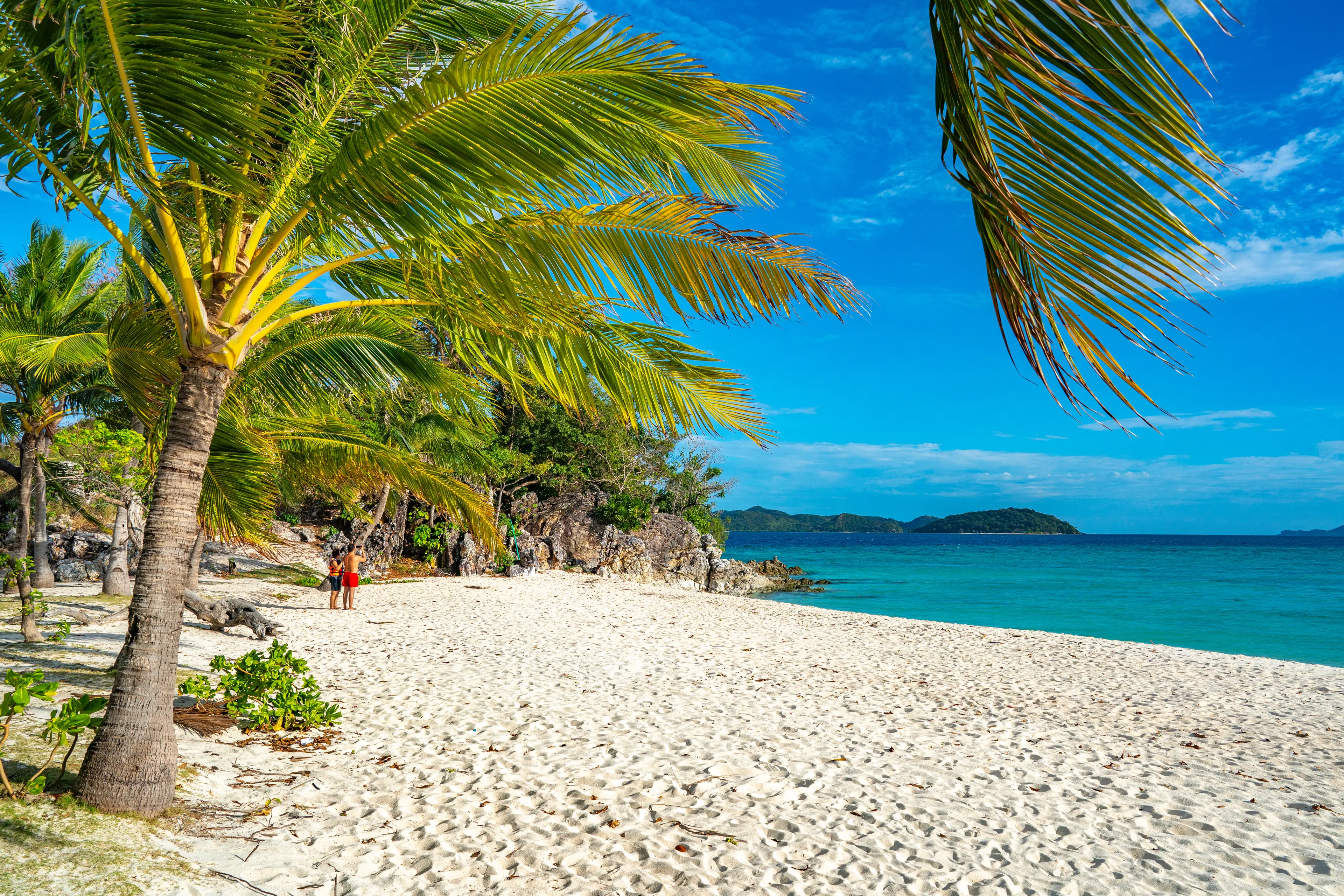
Coron
Known for its World War II-era shipwrecks and stunning coral reefs, Coron is a haven for divers and snorkelers.

El Nido
Famous for its white-sand beaches, coral reefs, and as the gateway to the Bacuit archipelago.
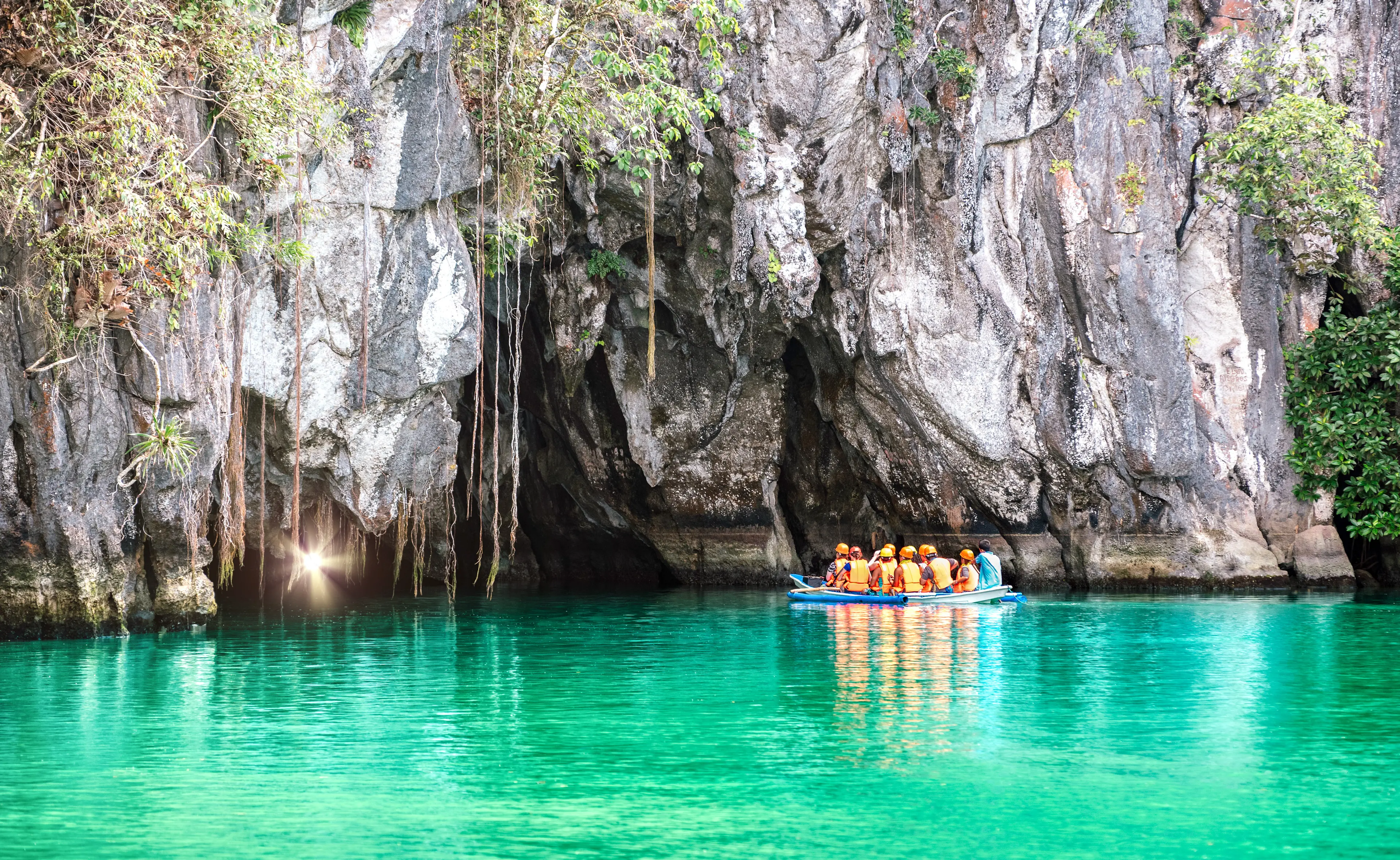
Puerto Princesa
Home to the Puerto Princesa Subterranean River National Park, a UNESCO World Heritage Site.
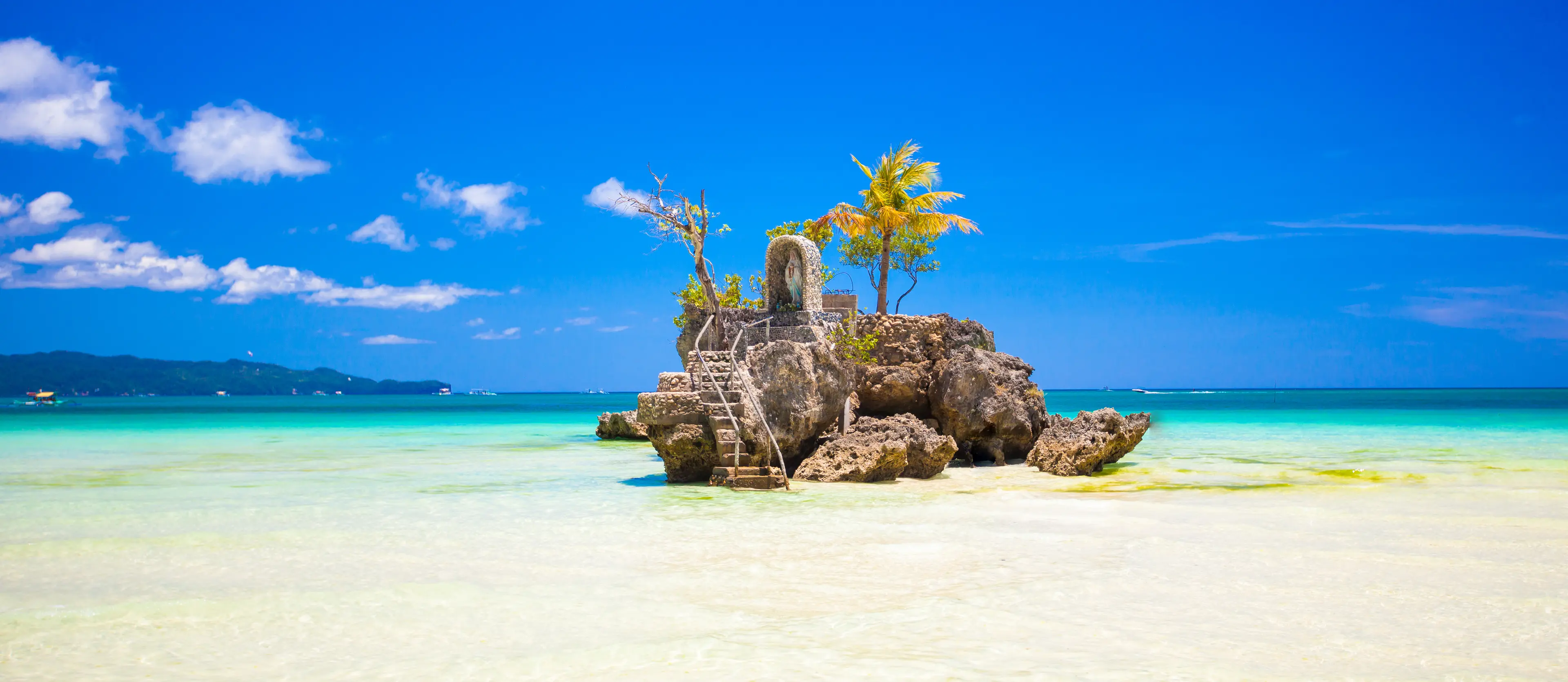
Boracay
A small island known for its white sandy beaches and vibrant nightlife.
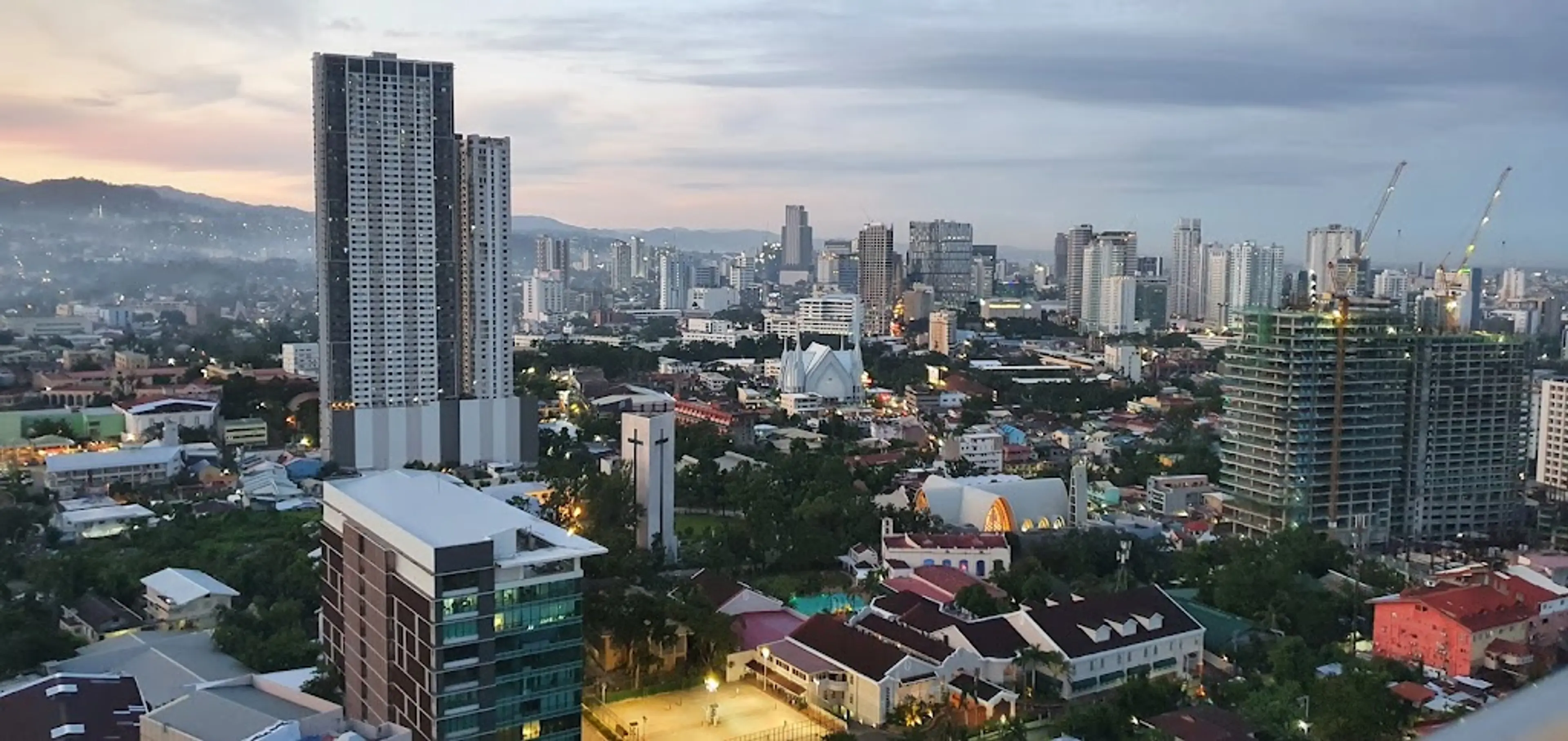
Cebu
Known for its white-sand beaches, diving spots, and vibrant nightlife.
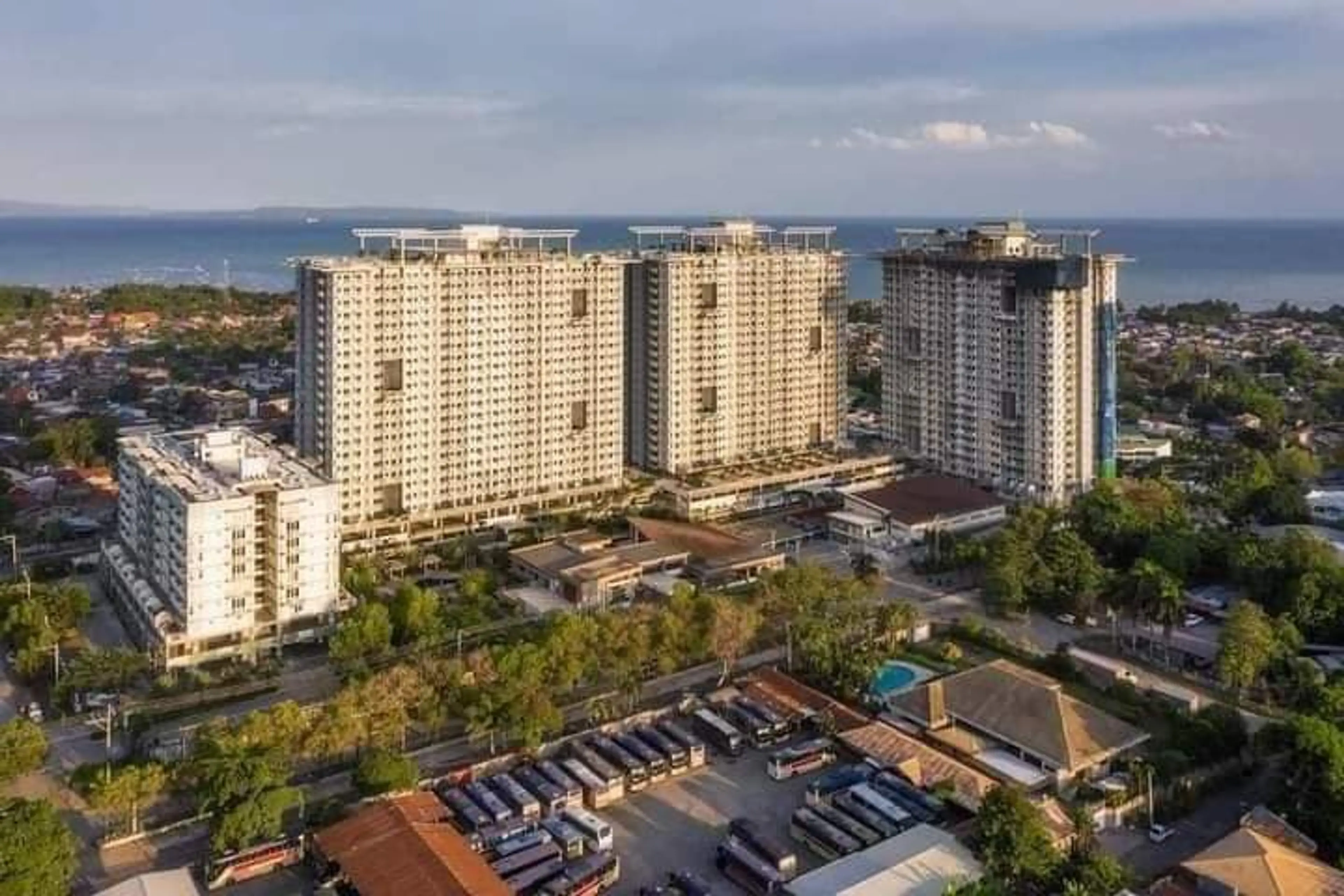
Davao
Home to Mount Apo, the highest peak in the Philippines, and the Philippine Eagle Center.
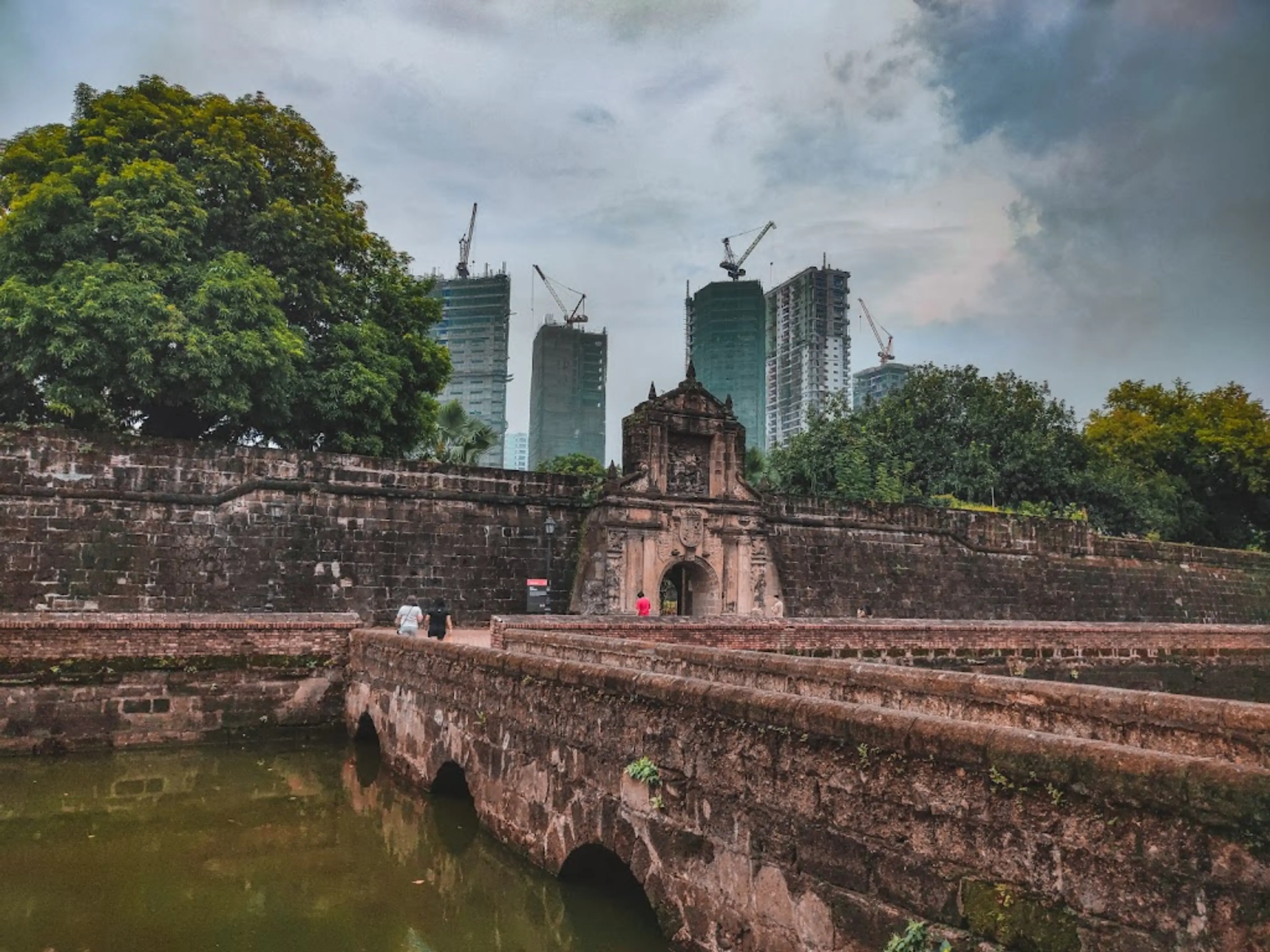
Manila
The capital of the Philippines, known for its bustling city life and historical sites.
